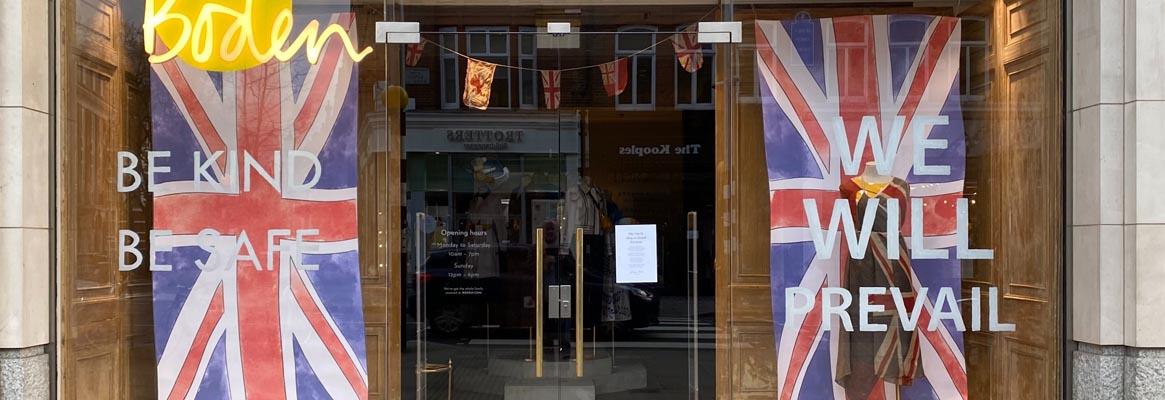2020 is turning out to be a year of extreme social, economical and political upheaval due to the Covid-19 pandemic. The fashion industry for one has seen colossal changes and the global supply chain has found itself in a troubling situation. In a scramble to minimise losses and keep shareholders happy, major apparel brands and retailers have cancelled or postponed billions of dollars of orders, including those orders already produced and ready to ship.
This has been mainly due to store closures in Europe and the US. This has had grave effects further down the supply chain as it has forced many suppliers to lay off or suspend millions of factory workers, often without pay and severance. It is standard practice for brands not to pay for garments until they have been shipped, meaning the current policies put suppliers and their workers in a highly vulnerable and perilous position. They push an already threatened group into greater poverty and hardship. It is an unfair system that the pandemic has exposed to the masses.
According to the Bangladeshi and Garment Manufacturers Exporters Association (BGMEA), at least 1.2 million garment workers in Bangladesh alone have been furloughed without pay after western brands cancelled $2.8 billion of existing orders in the wake of the Covid pandemic. Labour groups, exporters and manufacturing associations have been urging brands not to cancel orders in an effort to mitigate impacts on the 60 million garments workers across the globe. H&M, Inditex, Marks & Spencer, Kiabi, PVH, VF Corporation and Target are among the brands that have confirmed that they will fulfil existing contractual obligations.

On a brighter note, numerous corporations and brands have been stepping up to donate in this time of crisis. As an example, LVMH corporation initially donated $2.2 million to The Red Cross China, and subsequently transformed their perfume and cosmetics units to manufacture huge quantities of hydro alcoholic gel and also pledged 40 million medical masks.
The chairman and president of the Tiffany & Co Foundation, Anisa Kamadoli Costa, allocated $750,000 to the Covid-19 Solidarity Response Fund for the World Health Organisation, and $250,000 to The New York Community Trust’s NYC Covid-19 Response & Impact Fund.
Of course, many smaller independent brands have also donated volunteered to help and manufactured masks.
So What Needs To Change In The Fashion Supply Chain?
BoF (The Business of Fashion) founder and editor in chief Imran Amed thinks “its time to rewire the fashion system”. He explains that “the crisis is a catalyst that will shock the industry into change,” stressing the importance of collaboration and the fact that no company will be able to manage the crisis alone. Achim Berg, global leader of the Apparel, Fashion & Luxury Group at McKinsey and Company, states the crisis will have a long-term impact, but delivers a positive message that we have an opportunity “to redesign the industry’s value chain and to focus on the values by which we measure our actions.” The State of Fashion 2020 report emphasises to brands the importance of becoming “not just more digitally adept, but to become digital frontrunners.”
With regard to buying habits, the report posits that in the near future, consumers will take a more sustainable focus to purchasing, concentrating more on heritage pieces with longevity “Many consumers will be looking for so-called “investment” pieces - minimalist, last-forever items, that feel more responsible given the state of the world.” The pandemic has clearly placed the topic of sustainability in the spotlight, intensifying discussions and further polarising views around materialism, over-consumption and reckless business practices.

Digitisation is going to be a huge part of the rewiring of the industry. During these challenging times, trade shows and in-person meetings have been either postponed or cancelled across all industries. According to MeetExpo, more than 2,970 fairs and exhibitions have been compromised worldwide due to the massive disruption across industries. Even fashion shows have went online with all-digital fashion weeks taking place in London, Paris and Milan. Synzenbe has been working in partnership with suppliers and brands to find ways to support the industry as we navigate the "new normal." Through our platform, we are able to keep our industry more connected than ever online.
The Synzenbe show enables suppliers and brands to meet in real-time throughout a 5-day event from July 27 to July 31, 2020. The show enables suppliers to show their collections to brands and allows brands to connect with global leading suppliers through one-on-one meetings and attend a series of empowering discussions led by industry experts.
Benefits for brands will include: connecting with suppliers on new developments, sourcing fabrics efficiently through the platform, enlarging your network and building relationships with responsible suppliers, accessing the latest collections and ordering and tracking swatches in one place.
Benefits for suppliers will include: meeting and connecting with current and potential customers, showcasing your products and latest collections, a personalised and branded digital showroom, enhancement of your brand presence in the market, building a strong network with mission-aligned brands and getting featured in our social media platforms.
This article has not been edited by Fibre2Fashion staff and is re-published with permission from synzenbe.com










Comments